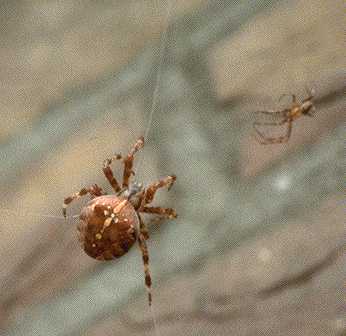What is it with the world lately? Everyone seems to want to get arthropods drunk! Late last year I answered a question on the reaction of banana spiders to alcohol (940270295.Zo), and only a few days ago I was reading about research being done into the coordination of bees when 'under the influence'. I keep many insects, but I had never seen them as being good drinking partners; perhaps I shall take a few out on the town tonight.
Research of the nature you propose has already been performed using various narcotics as well as alcohol and the effects are well worth recording because they are so pronounced. I have it in a folder somewhere and I shall see if I can dig it out.
To your experiment: First, choose a single species so that you may expect some consistency in your results. Be careful - I have only had one spider bite but it was while I was in the US and came from a very small specimen indeed. There is a safe genus which is commonly found in the garden and the house and is a prolific web-weaver; I have no doubt that you know the one of which I speak. It is patterned in grey and tawny brown, has a small head and thorax, a very large abdomen, and is about the size of a 5 pence piece (or a US dime - I think). Let me formally introduce you to Araneus diadematus. Here is a picture.

Once comfortable, the spiders will weave webs quickly and freely. They will tend to build in areas where there is a little shade to hide in, plenty of light to disguise the web, and a gentle air current. If you were to place a Y shaped branch of privet hedge in a tall tank near a window and leave the lid off I have no doubt that web creation would follow. Prune the privet hedge prudently to make it as attractive as possible - the prospect of climbing the tank against staying in a homely branch will keep the spiders put (usually).
I must admit that I am fairly foxed as to how to administer alcohol to a carnivorous arthropod. It's easy with insects because they are so very curious of aromas and many of them have a sweet tooth - you can mix alcohol with honey or glucose solution and happily watch bees, wasps and flies drink themselves into a stupor. Carnivores are a different matter. Having discussed the mechanics of pesticides before, I am fairly sure that ethyl or methyl alcohol can be administered as a vapour or mist which will either be drunk upon condensation, or 'ingested' through the spiracles. In the narcotics experiments, the drugs were burned and the spiders breathed the smoke but I doubt that your college will be impressed if you start 'cooking up' in the lab; let's stick to alcohol. I would be tempted to try mixing it in a 50% water solution and spray it with a misting spray to start with. This will keep the aroma down and should stop the alcohol behaving like a solvent on the spider or the web (Vodka kills ants - I know that for sure!). You may like to watch how upset the administration of the mixture makes the spider and decide whether or not to administer it before or after web construction has begun.
Watch for the spider crossing the site with a single strand, and then hanging a loop from it. Next it will anchor the bottom of the loop to a point at the bottom of where the web will be. It will then start building coarse scaffolding defining the radial lines of the web before placing similar lines to mark out the circumferential ones. The spider will now fill in the spiral web with very fine sticky strands, eating the scaffolding as it goes to preserve protein. You could try spraying at any of these stages and noting what happens.
Remember to keep a single teetotal spider as a control experiment to demonstrate that your intervention made a difference. Please tell me how you get on. You may like to finish your project by laying on some nibbles or finger food - you know how it is with drink.
Cheers!
Justin Roux.